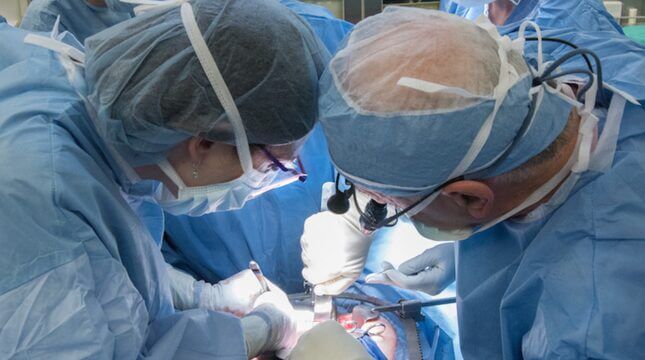A Neonatal ICU Nurse Donated Her Uterus to Help a Stranger Become Pregnant
Latest

Giving body parts away is categorically one of the kindest things one human being can do for another. Paying travel costs and time off work in addition to becoming one uterus lighter crosses into sainthood territory. A Pennsylvania neonatal intensive care nurse has done just that, flying to Dallas on her own dime and undergoing a nine-hour procedure to donate her uterus in a Baylor University clinical trial that could help a person struggling with infertility become pregnant.
Heather Bankos, a mother of three, saved up to cover travel costs and the time she’d spend recovering after the procedure, which could allow a person without a working uterus to become pregnant, according to the Philadelphia Inquirer:
“Uterus transplant is an experimental procedure that enables a woman who does not have a functioning uterus to become pregnant and give birth. Baylor researchers estimate that absolute uterine factor infertility, meaning the uterus is nonfunctioning or nonexistent, affects from 500,000 to three million U.S. women of childbearing age.”
And she’s not alone in her desire to donate. When Baylor launched its trial in 2016, the medical center was overwhelmed by requests to donate. In the first two weeks, 200 people had inquired, and the wait list to donate now includes hundreds of potential donors from 41 states.
The process usually starts with a cut from the navel to the pelvic bone and takes four to six hours, but Bankos was one of the first to test a nine-hour procedure that removes the uterus robotically and decreases the incision length as well as recovery time. And despite the painful-sounding process, the uterus is a pretty great organ to donate as far as spare parts go, according to Dr. Liza Johannesson, gynecologic surgeon and medical director of uterus transplant at Baylor.
“It’s a perfect organ to give away,” Johannesson said. “Once you’re done with it, you really don’t need it anymore. It’s not a kidney or part of a liver you may need later in life.”
A 2014 study in Sweden was the first in which a woman who’d received a uterus transplant successfully delivered a baby.